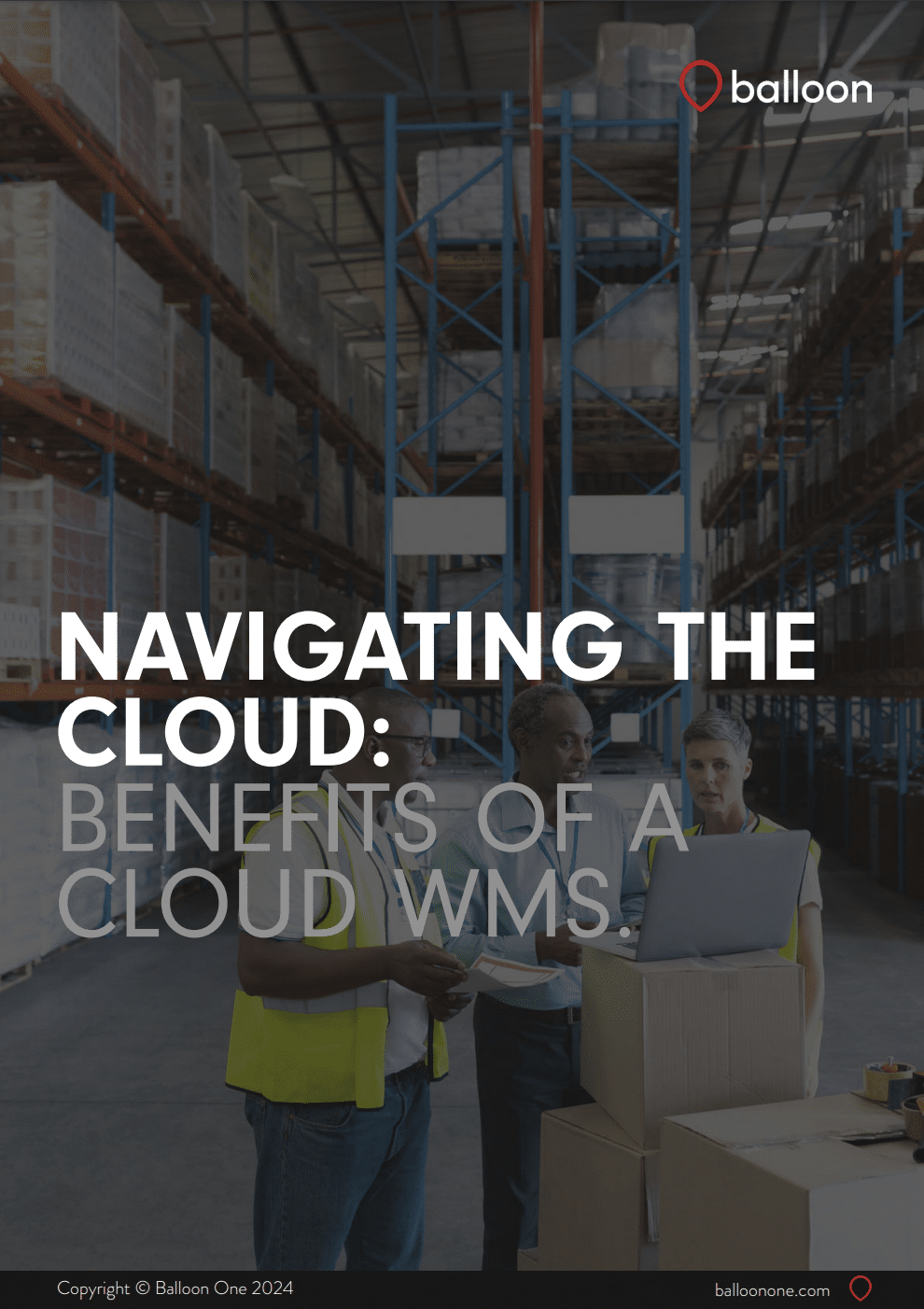
Navigating the Cloud: Benefits of Cloud-Based WMS.
Managing a warehouse well is key to success in today’s fast-paced business world. This ebook explains why moving from traditional WMS to cloud-based solutions is beneficial. It focuses on scalability, cost savings, and easy integration with ERP and other systems.
Key Benefits of a Cloud WMS.
1. Scalability and Flexibility
One major advantage of a cloud-based WMS is its ability to grow with a business. Whether a company expands or faces seasonal changes, the cloud can adjust easily. This also means businesses can manage warehouse operations in real-time across different locations.
2. Cost Efficiency
Cloud-based WMS solutions reduce the high upfront costs of on-premises systems. Instead of buying servers and managing data centres, businesses can subscribe to Warehouse Management Software as a Service (SaaS). This means the model offers predictable pricing and lessens the need for dedicated IT resources, cutting hardware and maintenance costs.
3. Real-Time Visibility
A cloud WMS system gives real-time access to inventory management, order tracking, and warehouse operations. You can use it from any device with an internet connection. This easy access helps managers make better decisions. They can respond quickly to changes in demand, inventory levels, and customer orders.
4. Seamless Integration
Cloud solutions can easily connect with business apps like ERP systems, CRM software, and e-commerce platforms. Consequently, this smooth connection helps data move easily across the supply chain, boosting efficiency and improving customer service.
5. Faster Implementation and Lower Downtime
Cloud-based WMS platforms are easy to set up. Moreover, you can deploy quickly. This is different from traditional on-premises systems, which require a lot of time and resources to install. Businesses can implement these systems within days or weeks, minimizing disruptions and reducing downtime during the transition process.
6. Enhanced Data Security
As data security grows in importance, cloud WMS providers focus on strong cybersecurity with encryption and multi-factor authentication. As a result, these features often surpass the security of on-premises systems, protecting sensitive business data.
7. Disaster Recovery and Compliance
Cloud-based WMS platforms offer robust disaster recovery mechanisms, ensuring data redundancy and automatic backups. Additionally, many providers adhere to global compliance standards, such as GDPR and ISO 27001, helping businesses navigate complex regulatory environments without additional effort.
8. Improved Customer Service and Reduced Costs
Cloud-based WMS makes inventory management easier and automates important tasks. This improves order accuracy and lowers errors. As a result, orders are fulfilled faster, and customers have better experiences. It also cuts costs from returns, stock issues, and labour inefficiencies.
Download.
Also recommended for you...
Frequently Asked Questions.
A cloud WMS is a remotely hosted software solution that businesses access online. It offers tools for managing warehouse operations, inventory, and order processing in real-time, eliminating the need for businesses to maintain their own IT infrastructure.
The main difference is in hosting and management. A cloud-based WMS is hosted and managed by a third party. An on-premises WMS is hosted on the company’s own servers.
Cloud-based systems offer scalability and lower upfront costs. They also require less IT maintenance. On-premises solutions provide more control over data and infrastructure.
The main benefits include scalability, cost efficiency, real-time visibility, quick implementation, enhanced security, easy integration with other systems, and better customer service. Businesses can cut IT costs, boost operational efficiency, and access advanced analytics and reporting features.
Yes, cloud-based WMS platforms typically offer advanced security features, including encryption, multi-factor authentication, and regular security updates. Reputable providers comply with international security standards, ensuring data is protected from breaches and unauthorised access.
Cloud-based WMS automates many manual processes, such as inventory tracking, order picking, and stock replenishment. This reduces human error, speeds up order fulfilment, and improves inventory accuracy, leading to better customer satisfaction and lower operational costs.
Yes, cloud-based WMS platforms are made to work well with ERP systems, CRM platforms, e-commerce software, and other business tools. This integration ensures that data flows smoothly across all areas of the business, improving overall supply chain management.
Cloud-based WMS is helpful for businesses in retail, e-commerce, manufacturing, and logistics. Any business needing efficient warehouse operations, real-time inventory management, and scalable solutions can benefit from cloud-based WMS.


